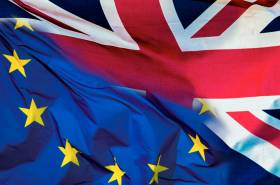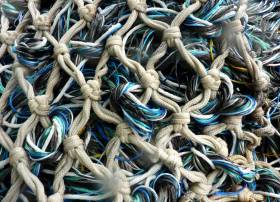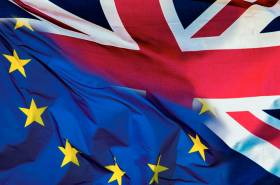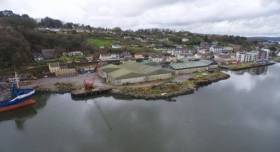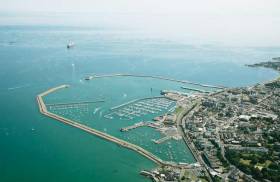Displaying items by tag: Brexit
#dublinport - Dublin Port's CEO has defended the company’s proposal to limit cruise ship traffic because of capacity issues.
Eamonn O’Reilly told RTÉ radio’s Morning Ireland that the plan is to reduce the number of cruise ships allowed into Dublin from 160 this year to 80 in 2021 because of the need for increased capacity for container traffic when the UK leaves the EU.
It is necessary to ration available capacity, he explained given the competition for berth spaces.
Mr O’Reilly said Dublin Port company had a long discussion with the Minister for Transport Shane Ross this week during which they discussed Brexit, borrowing and cruise berths.
BreakingNews.ie has more on the port proposal.
European Boating Association In Advisory For EU Boats In UK Waters In Event Of No-Deal Brexit
#Brexit - The European Boating Association (EBA) has urged its members to beware of the possible financial implications of having an EU boat in UK waters in the event of a no-deal Brexit.
In a circular to members, EBA general secretary Stuart Carruthers reiterates advice given at the association’s recent General Assembly in Helsinki, as received from the European Commission.
“In the event of a ‘no deal’ Brexit, boats which are lying in the UK at the time of Brexit will lose their Union status (ie they will lose their right to free circulation in the EU),” he writes.
“On their return to the EU they will be treated as non-Union goods and will be subject to customs controls in the same way as any other vessel coming from a third country would be. This could result in VAT and, if applicable, import duty being payable.”
Trade in fish from the EU to Britain will be subject to a range of tariffs in the event of a no-deal Brexit.
But there will be zero tariffs for goods traded from the Republic to Northern Ireland under the temporary measures announced by the UK government this morning (Wednesday 13 March).
It follows the Commons defeat of Theresa May’s latest tabling of her Withdrawal Agreement deal, with MPs set to vote tonight on whether to rule out the no-deal Brexit option.
It is now proposed that should Britain leave the EU without a deal, no new customs checks or controls would be introduced on the border between the Republic and Northern Ireland.
However, tariffs would still apply on goods moving from the EU into the rest of Britain via Northern Ireland.
The new regime zero-rates tariffs across many imports into Britain after a no-deal Brexit. But agri-food products are among the listed exceptions, with a range of rates applying.
Fish and seafood will be subject to a range of import tariffs from 7.5% for frozen monkfish meat (excluding fillets) to 24% for prepared or preserved tuna (excluding bluefin).
A rate of 12% will apply to frozen crustaceans, while frozen fish will be hit with 8% charges, with fillets levied an extra percent.
The Irish Farmers’ Association has already branded the proposals as disastrous for Ireland’s agricultural industry, singling out beef as one of is “most exposed sectors”, as RTÉ News reports.
UK Government Gives Guidance On VAT Status For Recreational Craft In Event Of No-Deal Brexit
Third country customs controls will apply to all pleasure craft moving within UK waters in the event of a no-deal Brexit, HM Revenue & Customs has confirmed to British Marine regarding the VAT Paid Status of recreational craft.
Upon exit from the European Union, which is currently scheduled for Friday 29 March, “customs declarations may be required for pleasure craft which are being imported to the UK from other EU countries and export declarations will be required for pleasure craft sold to other EU countries”.
For goods moving in and out of the UK temporarily, private owners and businesses alike will be required to use special customs procedures such as Temporary Admission or the Carnet system.
“These procedures will require personal owners or traders to provide financial security to cover any potential liability for import duty. It will be for importers and exporters to decide which process will be most suitable.”
For the time being, UK-based importers will have to prepare for import VAT payments on non-UK vessels, though “for the foreseeable future” these payments will not be due up front and may be reflected in regular VAT returns.
Import VAT relief may be available to some ex-pat UK owners under certain conditions. And vessels brought into the UK from the EU for works will be subject to customs procedures along the same lines as non-EU vessels are at present
British Marine has more analysis of the HMRC guidance HERE.
In Ireland, temporary admissions (for up to 18 months) of pleasure craft from outside the EU can be made without payment of VAT or Customs Duty.
Cork Harbour: Passage West Docks Sale Scuppered by Brexit
#waterfrontproperty - Plans in Cork Harbour, reports EchoLive.ie, to redevelop the dockyard in Passage West have been scuppered by Brexit.
The planned redevelopment of the dockyard site into a modern, urban waterfront settlement had been hailed as a ‘game-changer’ for the town when funding was secured to purchase the dockyard from the Doyle Shipping Group last November.
Cork County Council was granted €1.9m by the Government to purchase the eight-acre site but in a ‘bombshell’ announcement yesterday, County Hall chiefs said the site has been taken off the market and the funding would likely be lost.
Senior Executive Officer in County Hall, Jim Molloy, said the dockyard was no longer for sale because the uncertainty that Brexit has created for Ireland’s future shipping needs.
The announcement was described as a bitter blow for Passage West but Mr Molloy said a ‘wait and see’ approach is being adopted by shipping companies and ports until the implications of Brexit are known.
For more on the story click here.
Minister Creed & EU Fisheries Commissioner Discuss ‘No Deal’ Brexit Threats To Irish Fishing Industry
Marine Minister Michael Creed met yesterday (Monday 18 February) in Brussels with Fisheries Commissioner Karmenu Vella to discuss the threats to the Irish fishing industry from a ‘no deal’ Brexit.
Minister Creed said: “I had a very constructive meeting today with Commissioner Vella where we again discussed the exposure of the Irish fishing sector to the threats posed by a no-deal Brexit.
“I made clear my view that a no-deal Brexit poses serious challenges for the Irish fishing industry and a co-ordinated EU response will be required.
“Obviously, we all hope that the Withdrawal Agreement which EU negotiated with the UK Government will be agreed and that we all avoid the uncertainty of a no-deal outcome.”
The Commission has brought forward legislative proposals dealing with the possible use of temporary cessation measures, quota swapping with the UK and potential reciprocal access, which Minster Creed has welcomed.
“The Commissioner has already brought forward a number of proposals, which I welcome, to deal with possible impacts arising from a disorderly Brexit, but more measures will be required,” the minister said.
“Commissioner Vella has a solid understanding of the scale of the potential problems facing the EU fishing industry and the Irish industry in particular.”
Minster Creed and the Commissioner discussed a number of issues that might arise from a disorderly Brexit, including loss of access for Irish and other EU vessels to the UK fishing zone, protection of fish stocks in the waters around Ireland from a subsequent increase in fishing activity, and potential mitigation measures at EU level.
“It is imperative that the Commission continue its leading role in ensuring that there will be a co-ordinated EU response to ensure the ongoing viability of our fleets and the long-term sustainability of the stocks upon which they rely,” Minister Creed added.
Public Meeting On ‘People’s Harbour’ In Dun Laoghaire Later This Month
A public meeting on the future on Dun Laoghaire Harbour will take place at the Dun Laoghaire Club on Eblana Avenue from 8pm on Thursday 28 February.
‘The People’s Harbour’ was also the topic of a recent meeting between Dun Laoghiare-Rathdown councillors from Sinn Féin, Labour, People Before Profit and local independent Michael Merrigan.
The latter tabled a question at the 21 January meeting of the Dun Laoghaire Area Committee regarding contingency planning in the event of a no-deal Brexit.
“Residents have been contacting me with their concerns that in the event of Dun Laoghaire-Rathdown County Council being requested by the Government to make Dun Laoghaire Harbour available for ferry services, that we could have a return to big lorries coming through the town,” Cllr Merrigan commented earlier this month.
Dún Laoghaire - "The People's Harbour" - Public Meeting on the Future of the Harbour - Thursday 28th February 2019 at 20.00hrs, Dún Laoghaire Club, 3, Eblana Avenue, Dún Laoghaire. The Harbour was transferred to @dlrcc on 3 Oct. 2018. @DLRTourism @DublinGazette #PeoplesHarbour pic.twitter.com/d9VQo2h5dy
— Michael Merrigan ???? (@VoteMerrigan) February 12, 2019
UK's North Sea Port of Felixstowe Boosts Capacity Ahead of Brexit
#ports - As Brexit looms and all the uncertainty, the Port of Felixstowe in England, has announced an agreement (see story: UK Government contract) with Danish ferry operator DFDS to increase its roll-on/roll-off (ro/ro) capacity by over 40%.
According to a statement, reports Port Technology, the capacity boost will be achieved through investment in a new linkspan, tractor units and additional trailer parking facilities.
The Port of Felixstowe has been described as “key gateway” for ro/ro trade with Europe, and demand on DFDS’ service from the UK trade hub to Rotterdam has been growing year-on-year.
Clemence Cheng, Chief Executive Officer at the Port of Felixstowe, commented: “The new contract includes a significant investment by Hutchison Ports replacing one of our existing ro/ro bridges with a modern floating linkspan capable of handling the latest generation of ro/ro vessels and creating over 300 additional trailer spaces for unaccompanied ro/ro traffic.”
To read more on this development click here
In additition to what are the UK's ports doing to prepare for Brexit? click this link to Port Technology's technical paper (download).
#irishports - Leading experts along with Irish businesses say the Government needs to tap special funds from the EU to help offset the effects of Brexit.
As the Irish Examiner reports, for hauliers, Aidan Flynn, who heads up Freight Transport Association Ireland, whose members operate 10,000 commercial vehicles, said the risk of a no-deal amid the UK political chaos, should mean the Irish Government ramps up its contingency plans.
“We do not think it is near enough funding despite the aid from Enterprise Ireland and InterTrade Ireland,” said Mr Flynn.
He wants Tánaiste Simon Coveney to focus on “the nitty-gritty” of where Irish trucks will park at ports and not “measure its progress on how many inspectors it recruits”.
Back from a meeting of customs officials in Lille, Mr Flynn said that inspectors would quickly become the instigators of delays and hauliers face the need to provide financial guarantees, in the even of a no-deal Brexit.
Seamus Coffey, the UCC economist and chair of the Irish Fiscal Advisory Council, said there was “no doubt” that many UK retailers which operate large store chains in Ireland would run out of stock in a few days, under a no-deal outcome.
More on the story can be read here.
#ports - A leading UK ports operator, Associated British Ports (ABP) recently announced an additional investment to boost facilities at its Port of Hull, bringing the group’s total investment to £250 million since the EU referendum in 2016.
This programme of investment demonstrates the group’s commitment to keeping Britain trading with Europe and the rest of the world after Brexit.
ABP is actively working to support businesses anxious about the event of a No-Deal Brexit and the potential severe disruption this may cause at the Port of Dover.
Container and ferry facilities at ABP on the Humber are capable of helping businesses bypass such disruption, providing regular and reliable links to Europe. Over 70 sailings every week connect the Humber to a number of destinations including Belgium, the Netherlands, Denmark and Poland.
Investment highlights include: £50 million to boost capacity at its container terminals at ABP’s ports of Hull and Immingham; £65 million to help ensure the future of the steel industry on the river Humber; £55 million to enhance the automotive and cruise offering in the Port of Southampton. In addition to a range of other investments throughout its network of 21 ports across England, Scotland and Wales.
According to ABP which has an important component role in the UK’s trading infrastructure, the group handles almost £150 billion of UK trade across its port network, contributing around £7.5 billion to the UK economy. In addition to supporting almost 120,000 jobs across its supply chains.


























